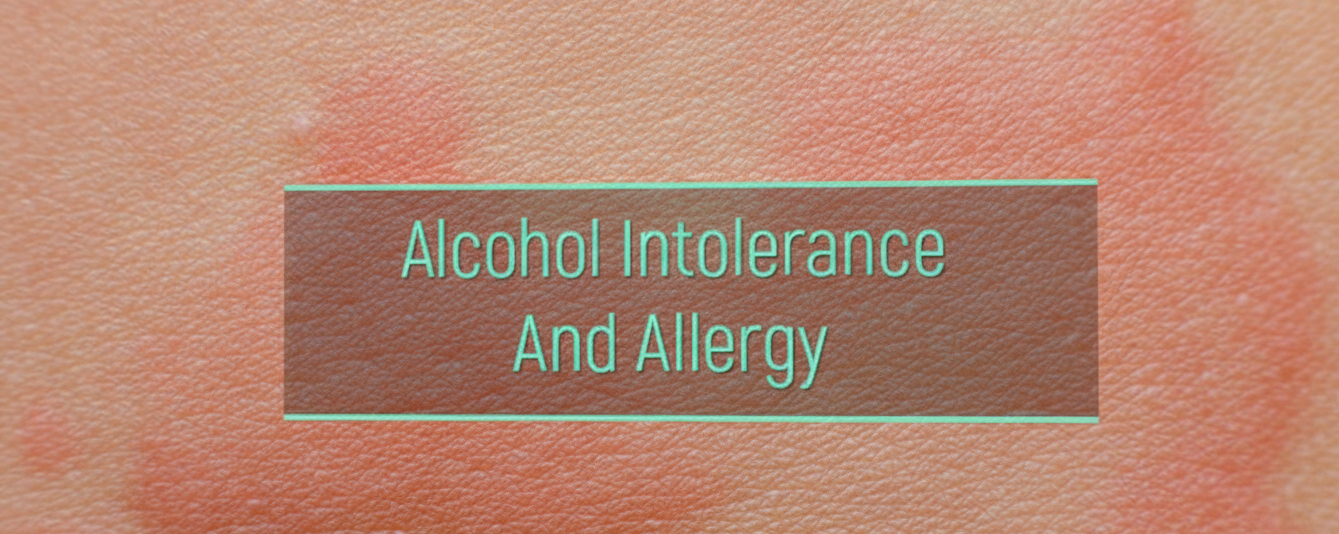Alcohol allergy is often confused with alcohol intolerance because both involve unpleasant reactions after drinking. However, true alcohol allergy is rare and involves an immune system response, while intolerance is caused by the digestive system’s inability to process certain alcohol components.
Table of Contents
- What Is Alcohol Allergy?
- Symptoms of Alcohol Allergy and Intolerance
- Mechanism of Reactions to Ethanol
- Common Allergens in Alcoholic Beverages
- Genetic Factors and Other Disorders
- Possible Complications of Alcohol Intolerance
- When to Seek Help
What Is Alcohol Allergy?
Alcohol allergy occurs when the immune system reacts to one or more components in alcoholic beverages, such as wheat, barley, rye, corn, histamines, or sulfites. This reaction can happen at any age and, in rare cases, can be fatal.
Unlike intolerance, which is related to digestive enzyme deficiencies, allergies involve the production of Immunoglobulin E (IgE) antibodies in response to allergens.
Symptoms of Alcohol Allergy and Intolerance
Alcohol Allergy
Allergic reactions may range from mild to severe:
- Hives, itchiness, eczema
- Rash on the skin, nose, or eyes
- Swelling of the face, throat, or other body parts
- Difficulty breathing
- Nausea, vomiting, abdominal pain, diarrhea
- Low blood pressure and dizziness
- Loss of consciousness or coordination
- Hot flashes, especially after excessive drinking
Alcohol Intolerance
Intolerance occurs due to insufficient digestive enzymes needed to break down alcohol. Symptoms include:
- Nausea and vomiting
- Palpitations and rapid heartbeat
- Headache and dizziness
- Facial redness
- Heartburn and acid reflux
- Asthma or nasal congestion
- Hives and rashes
💡 Heavy drinking may produce symptoms similar to intolerance, so it’s important to distinguish between the two.
Mechanism of Reactions to Ethanol
- Alcohol allergy: The immune system reacts to allergens in alcohol, producing IgE antibodies that trigger allergic symptoms.
- Alcohol intolerance: Caused by a deficiency in the ALDH2 enzyme, which breaks down acetaldehyde (a metabolite of alcohol) into acetic acid. This genetic condition is common in Asians.
Common Allergens in Alcoholic Beverages
- Sulfites: Added as preservatives in wine and beer. Can trigger asthma and other allergic reactions.
- Histamine: Found in fermented beverages. Low levels of diamine oxidase (DAO) enzyme can lead to immediate allergic reactions like diarrhea, nasal congestion, or skin irritation.
- Other allergens: Wheat, barley, hops, grapes, egg protein, yeast, rye, and gluten. Higher concentrations increase the risk of intolerance.
Genetic Factors and Other Disorders
- Genetic polymorphism: Inhibits ALDH2 production, preventing proper acetaldehyde breakdown (common in Asians).
- Other disorders associated with alcohol intolerance:
- Hodgkin’s Lymphoma
- Asthma and hay fever
- Alcoholic gastritis
- Acid reflux
Excessive alcohol or withdrawal after long-term binge drinking can also trigger seizures.
Possible Complications of Alcohol Intolerance
Alcohol reactions can lead to both primary and secondary health issues:
- Severe anaphylaxis (rare but life-threatening)
- Impaired mental function
- Liver and stomach toxicity
- Extreme anxiety
- Low blood sugar in diabetic patients
Immediate treatment is essential for any severe reaction to alcohol.
When to Seek Help
Pay attention to symptoms and their timing. Early recognition allows for effective management:
- Mild to severe allergic reactions: Can often be treated with epinephrine as a first response.
- Professional care: Follow up at an alcohol treatment or medical center for comprehensive care.
